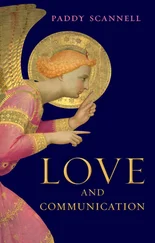Leon Trotsky - Dictatorship vs. Democracy (Terrorism and Communism) - a reply to Karl Kantsky
Здесь есть возможность читать онлайн «Leon Trotsky - Dictatorship vs. Democracy (Terrorism and Communism) - a reply to Karl Kantsky» — ознакомительный отрывок электронной книги совершенно бесплатно, а после прочтения отрывка купить полную версию. В некоторых случаях можно слушать аудио, скачать через торрент в формате fb2 и присутствует краткое содержание. Жанр: foreign_prose, на английском языке. Описание произведения, (предисловие) а так же отзывы посетителей доступны на портале библиотеки ЛибКат.
- Название:Dictatorship vs. Democracy (Terrorism and Communism): a reply to Karl Kantsky
- Автор:
- Жанр:
- Год:неизвестен
- ISBN:нет данных
- Рейтинг книги:5 / 5. Голосов: 1
-
Избранное:Добавить в избранное
- Отзывы:
-
Ваша оценка:
- 100
- 1
- 2
- 3
- 4
- 5
Dictatorship vs. Democracy (Terrorism and Communism): a reply to Karl Kantsky: краткое содержание, описание и аннотация
Предлагаем к чтению аннотацию, описание, краткое содержание или предисловие (зависит от того, что написал сам автор книги «Dictatorship vs. Democracy (Terrorism and Communism): a reply to Karl Kantsky»). Если вы не нашли необходимую информацию о книге — напишите в комментариях, мы постараемся отыскать её.
Dictatorship vs. Democracy (Terrorism and Communism): a reply to Karl Kantsky — читать онлайн ознакомительный отрывок
Ниже представлен текст книги, разбитый по страницам. Система сохранения места последней прочитанной страницы, позволяет с удобством читать онлайн бесплатно книгу «Dictatorship vs. Democracy (Terrorism and Communism): a reply to Karl Kantsky», без необходимости каждый раз заново искать на чём Вы остановились. Поставьте закладку, и сможете в любой момент перейти на страницу, на которой закончили чтение.
Интервал:
Закладка:
"Profound disbelief in the political struggle of the proletariat," he writes, "and in its participation in politics, was the characteristic of Proudhonism. To-day there arises a similar (!!) view, and it is recommended to us as the new gospel of Socialist thought, as the result of an experience which Marx did not, and could not, know. In reality, it is only a variation of an idea which half a century ago Marx was fighting, and which he in the end defeated." (Page 79.)
Bolshevism proves to be warmed-up Proudhonism! From a purely theoretical point of view, this is one of the most brazen remarks in the pamphlet.
The Proudhonists repudiated democracy for the same reason that they repudiated the political struggle generally. They stood for the economic organization of the workers without the interference of the State, without revolutionary outbreaks – for self-help of the workers on the basis of production for profit. As far as they were driven by the course of events on to the path of the political struggle, they, as lower middle-class theoreticians, preferred democracy, not only to plutocracy, but to revolutionary dictatorship. What thoughts have they in common with us? While we repudiate democracy in the name of the concentrated power of the proletariat, the Proudhonists, on the other hand, were prepared to make their peace with democracy, diluted by a federal basis, in order to avoid the revolutionary monopoly of power by the proletariat. With more foundation Kautsky might have compared us with the opponents of the Proudhonists, the Blanquists , who understood the meaning of a revolutionary government, but did not superstitiously make the question of seizing it depend on the formal signs of democracy. But in order to put the comparison of the Communists with the Blanquists on a reasonable footing, it would have to be added that, in the Workers' and Soldiers' Councils, we had at our disposal such an organization for revolution as the Blanquists could not even dream of; in our party we had, and have, an invaluable organization of political leadership with a perfected programme of the social revolution. Finally, we had, and have, a powerful apparatus of economic transformation in our trade unions, which stand as a whole under the banner of Communism, and support the Soviet Government. Under such conditions, to talk of the renaissance of Proudhonist prejudices in the shape of Bolshevism can only take place when one has lost all traces of theoretical honesty and historical understanding.
It is not for nothing that the word "democracy" has a double meaning in the political vocabulary. On the one hand, it means a state system founded on universal suffrage and the other attributes of formal "popular government." On the other hand, by the word "democracy" is understood the mass of the people itself, in so far as it leads a political existence. In the second sense, as in the first, the meaning of democracy rises above class distinctions. This peculiarity of terminology has its profound political significance. Democracy as a political system is the more perfect and unshakable the greater is the part played in the life of the country by the intermediate and less differentiated mass of the population – the lower middle-class of the town and the country. Democracy achieved its highest expression in the nineteenth century in Switzerland and the United States of North America. On the other side of the ocean the democratic organization of power in a federal republic was based on the agrarian democracy of the farmers. In the small Helvetian Republic, the lower middle-classes of the towns and the rich peasantry constituted the basis of the conservative democracy of the united cantons.
Born of the struggle of the Third Estate against the powers of feudalism, the democratic State very soon becomes the weapon of defence against the class antagonisms generated within bourgeois society. Bourgeois society succeeds in this the more, the wider beneath it is the layer of the lower middle-class, the greater is the importance of the latter in the economic life of the country, and the less advanced, consequently, is the development of class antagonism. However, the intermediate classes become ever more and more helplessly behind historical development, and, thereby, become ever more and more incapable of speaking in the name of the nation. True, the lower middle-class doctrinaires (Bernstein and Company) used to demonstrate with satisfaction that the disappearance of the middle-classes was not taking place with that swiftness that was expected by the Marxian school. And, in reality, one might agree that, numerically, the middle-class elements in the town, and especially in the country, still maintain an extremely prominent position. But the chief meaning of evolution has shown itself in the decline in importance on the part of the middle-classes from the point of view of production: the amount of values which this class brings to the general income of the nation has fallen incomparably more rapidly than the numerical strength of the middle-classes. Correspondingly, falls their social, political, and cultural importance. Historical development has been relying more and more, not on these conservative elements inherited from the past, but on the polar classes of society — i. e. , the capitalist bourgeoisie and the proletariat.
The more the middle-classes lost their social importance, the less they proved capable of playing the part of an authoritative arbitral judge in the historical conflict between capital and labor. Yet the very considerable numerical proportion of the town middle-classes, and still more of the peasantry, continues to find direct expression in the electoral statistics of parliamentarism. The formal equality of all citizens as electors thereby only gives more open indication of the incapacity of democratic parliamentarism to settle the root questions of historical evolution. An "equal" vote for the proletariat, the peasant, and the manager of a trust formally placed the peasant in the position of a mediator between the two antagonists; but, in reality, the peasantry, socially and culturally backward and politically helpless, has in all countries always provided support for the most reactionary, filibustering, and mercenary parties which, in the long run, always supported capital against labor.
Absolutely contrary to all the prophecies of Bernstein, Sombart, Tugan-Baranovsky, and others, the continued existence of the middle classes has not softened, but has rendered to the last degree acute, the revolutionary crisis of bourgeois society. If the proletarianization of the lower middle-classes and the peasantry had been proceeding in a chemically purified form, the peaceful conquest of power by the proletariat through the democratic parliamentary apparatus would have been much more probable than we can imagine at present. Just the fact that was seized upon by the partisans of the lower middle-class – its longevity – has proved fatal even for the external forms of political democracy, now that capitalism has undermined its essential foundations. Occupying in parliamentary politics a place which it has lost in production, the middle-class has finally compromised parliamentarism, and has transformed it into an institution of confused chatter and legislative obstruction. From this fact alone, there grew up before the proletariat the problem of seizing the apparatus of state power as such, independently of the middle-class, and even against it – not against its interests, but against its stupidity and its policy, impossible to follow in its helpless contortions.
"Imperialism," wrote Marx of the Empire of Napoleon III, "is the most prostituted, and, at the same time, perfected form of the state which the bourgeoisie, having attained its fullest development, transforms into a weapon for the enslavement of labor by capital." This definition has a wider significance than for the French Empire alone, and includes the latest form of imperialism, born of the world conflict between the national capitalisms of the great powers. In the economic sphere, imperialism pre-supposed the final collapse of the rule of the middle-class; in the political sphere, it signified the complete destruction of democracy by means of an internal molecular transformation, and a universal subordination of all democracy's resources to its own ends. Seizing upon all countries, independently of their previous political history, imperialism showed that all political prejudices were foreign to it, and that it was equally ready and capable of making use, after their transformation and subjection, of the monarchy of Nicholas Romanoff or Wilhelm Hohenzollern, of the presidential autocracy of the United States of North America, and of the helplessness of a few hundred chocolate legislators in the French parliament. The last great slaughter – the bloody font in which the bourgeois world attempted to be re-baptised – presented to us a picture, unparalleled in history, of the mobilization of all state forms, systems of government, political tendencies, religious, and schools of philosophy, in the service of imperialism. Even many of those pedants who slept through the preparatory period of imperialist development during the last decades, and continued to maintain a traditional attitude towards ideas of democracy and universal suffrage, began to feel during the war that their accustomed ideas had become fraught with some new meaning. Absolutism, parliamentary monarchy, democracy – in the presence of imperialism (and, consequently, in the presence of the revolution rising to take its place), all the state forms of bourgeois supremacy, from Russian Tsarism to North American quasi-democratic federalism, have been given equal rights, bound up in such combinations as to supplement one another in an indivisible whole. Imperialism succeeded by means of all the resources it had at its disposal, including parliamentarism, irrespective of the electoral arithmetic of voting, to subordinate for its own purposes at the critical moment the lower middle-classes of the towns and country and even the upper layers of the proletariat. The national idea, under the watchword of which the Third Estate rose to power, found in the imperialist war its rebirth in the watchword of national defence. With unexpected clearness, national ideology flamed up for the last time at the expense of class ideology. The collapse of imperialist illusions, not only amongst the vanquished, but – after a certain delay – amongst the victorious also, finally laid low what was once national democracy, and, with it, its main weapon, the democratic parliament. The flabbiness, rottenness, and helplessness of the middle-classes and their parties everywhere became evident with terrifying clearness. In all countries the question of the control of the State assumed first-class importance as a question of an open measuring of forces between the capitalist clique, openly or secretly supreme and disposing of hundreds of thousands of mobilized and hardened officers, devoid of all scruple, and the revolting, revolutionary proletariat; while the intermediate classes were living in a state of terror, confusion, and prostration. Under such conditions, what pitiful nonsense are speeches about the peaceful conquest of power by the proletariat by means of democratic parliamentarism!
Читать дальшеИнтервал:
Закладка:
Похожие книги на «Dictatorship vs. Democracy (Terrorism and Communism): a reply to Karl Kantsky»
Представляем Вашему вниманию похожие книги на «Dictatorship vs. Democracy (Terrorism and Communism): a reply to Karl Kantsky» списком для выбора. Мы отобрали схожую по названию и смыслу литературу в надежде предоставить читателям больше вариантов отыскать новые, интересные, ещё непрочитанные произведения.
Обсуждение, отзывы о книге «Dictatorship vs. Democracy (Terrorism and Communism): a reply to Karl Kantsky» и просто собственные мнения читателей. Оставьте ваши комментарии, напишите, что Вы думаете о произведении, его смысле или главных героях. Укажите что конкретно понравилось, а что нет, и почему Вы так считаете.












